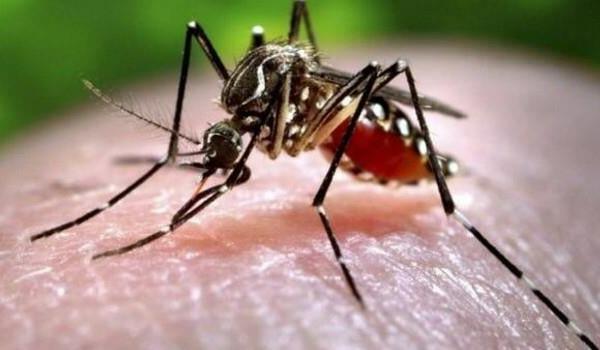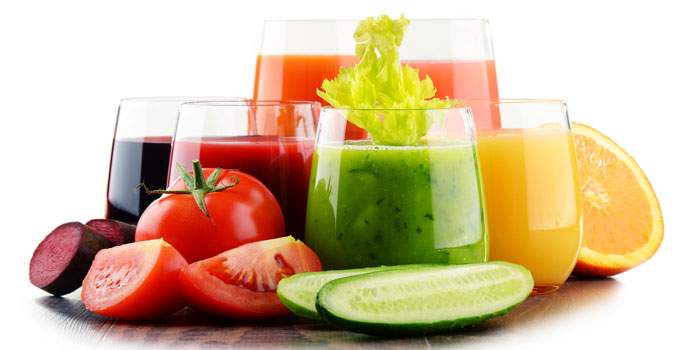Juice diets have become increasingly popular as supposed ‘quick fix’ regimes, promising dramatic weight loss in a relatively short timeframe, as well as sometimes claiming other health benefits such as ‘detoxing’ the liver, clearer skin and improved mood. But can they really improve your health, is the weight loss sustainable, and are there dangers to following such extreme diets?
Axar.az reports that whether they're labelled as juice fasts, juice cleanses or juice detoxes, all juice diets are based around consuming a variety of juiced fruits and vegetables. Many juice diets involve abstaining from eating other foods and only drinking juice, while some involve eating particular solid foods as well. The calorie intake is usually very restricted on juice diets.
The most extreme juice diets are usually limited to a short period of time – often between three days and one week. Juice diets which permit some solid foods and more calories are sometimes followed for longer periods of time.Juice-only diets are usually vegetarian and can also be vegan, although some plans allow you to add honey or yogurt to the juices.
Are juice diets safe?
There’s little scientific evidence to support juice diets as a sensible approach to better health. Furthermore, if you follow this sort of diet for longer than a couple of days it is unlikely you will meet all your nutritional needs.
That said, fruit and vegetables are an important part of a balanced diet and we should all aim for a minimum of five portions a day. A varied selection of fruit and veg provides vitamins, minerals, antioxidants and fibre. However, juices (unsweetened, 100% juice) only count as one of your five-a-day regardless of how much you drink, this is because juices don’t contain the fibre found in the whole fruit and vegetables.
Which nutrients may be missing from juice diets?
The very action of juicing eliminates certain nutrients — dietary fibre is an obvious one as well as other beneficial nutrients which are found in or just under the skin and in the seeds etc. An example is the white pith of citrus fruits like oranges, which is a useful source of protective flavonoids.
Also, protein, which is needed to maintain muscle and to support growth and repair, iron to support energy levels, and fats, including the essential omega-3 variety, are key nutrients which are likely to be missing from a juice-only diet.
Are juice diets effective for weight loss and is it sustainable?
Most people are likely to lose some weight following a juice diet because it involves cutting out sources of fat and protein and significantly cutting calorie intake. However, the weight loss is unlikely to be sustainable in the longer term as you return to your regular eating habits. You should also be aware that the amount of weight you lose will be dependent on your own individual circumstances, including how much weight you have to lose at the outset.
There is currently some evidence to suggest that a short-term three-day juice diet may have benefits for gut health and in turn, benefit longer term weight maintenance. This is because the balance of bacteria in the gut is now thought to influence weight.
If you are considering a short-term juice diet, make the juices yourself with fresh, organic produce focusing on vegetables and flavouring with a small amount of fruit. Juice only as much as you need, when you need it to optimise your nutrient intake and add back some of the extracted pulp to ensure the inclusion of fibre and valuable phytonutrients.
What about the sugar in juice?
Juices made mainly or entirely from fruit are likely to be high in sugar. Juicing releases the sugars in fruit – making them ‘free’ sugars, the type we are advised to cut back on – and removes the fibre, meaning that sugar is more quickly absorbed into the blood stream than if you were to eat a whole piece of fruit. The combination of a rapid rise in blood sugar levels and lack of fibre may result in hunger and cravings on a juice-only diet. Some experts have expressed concern that drinking fructose in liquid form may impact the liver, and could potentially fool our brains into thinking we are still hungry, which may also increase appetite and cravings. The British Dental Association has confirmed a link between juice consumption and tooth decay. Read their tips to protect your teeth when drinking juice.
Can juicing help to ‘detox’ the body?
Our bodies have an inbuilt detox system which includes the liver, kidneys and gut. So you do not need to follow a juice diet to kick-start the detox process – your body is working hard to do this for you on an ongoing basis.
Can juicing help to improve skin?
Raw fruit and vegetables are excellent sources of skin supportive nutrients like collagen-supportive vitamin C and skin-friendly beta-carotene (vitamin A). However, some of these beneficial nutrients like vitamins A, E and K need fat for absorption — the lack of fat in a juice diet may, therefore, impact the bioavailability of these vitamins. For healthy, youthful skin you also need to include sources of protein and the omega variety of fats, both of which are typically deficient in a juice only diet.
Other dietary changes that are implicated in a juice diet, such as eliminating refined sugars, processed foods and alcohol, may actually be helpful for improving skin condition.
Can juicing help to boost your mood?
There are some reports of a general improvement in mood when combined with lifestyle changes. This may be more to do with the other dietary changes implicated, such as cutting back on processed and junk foods, as well as eliminating alcohol, caffeine and refined sugars.
Who should avoid juice diets?
If you have a medical condition or are on medication, consult your GP or medical practitioner before making any drastic changes to your eating patterns. The high consumption of natural sugars implicit in juicing can cause blood-sugar levels to fluctuate, so those with diabetes or blood sugar management issues should avoid juice diets.
It is advisable to avoid juice diets if you are pregnant, or breastfeeding, elderly, or under 18, recovering from surgery or you have kidney or liver conditions, have epilepsy, have anaemia, or low blood pressure, have a history of eating disorders



















































